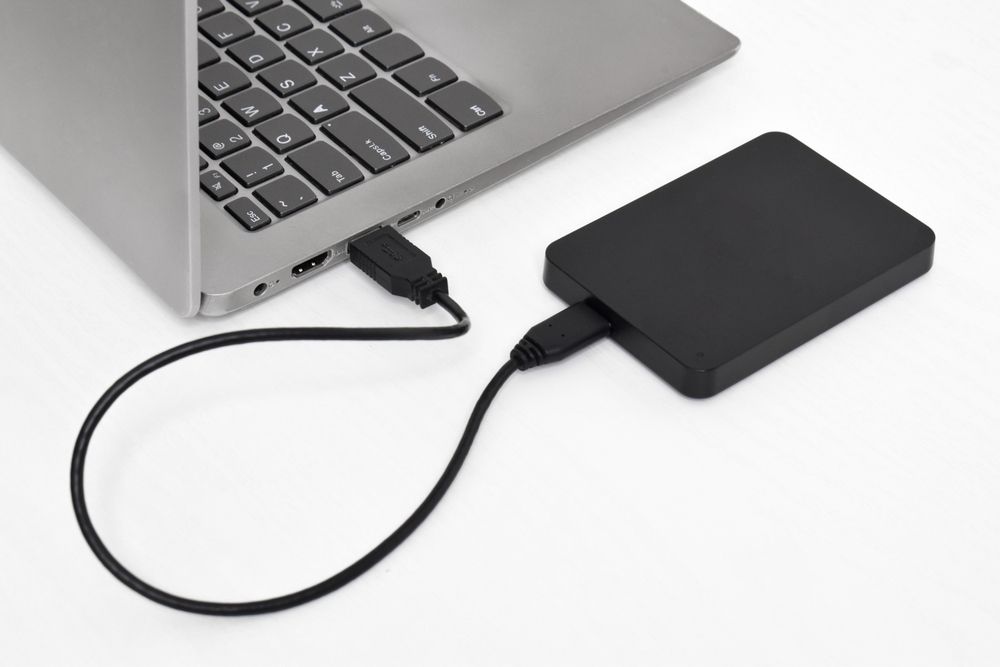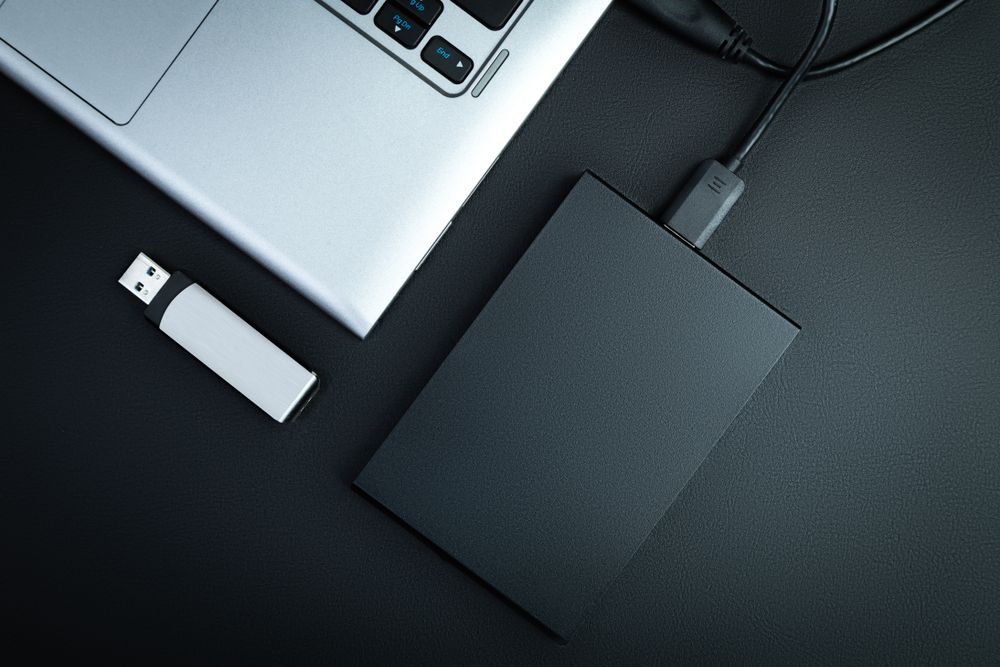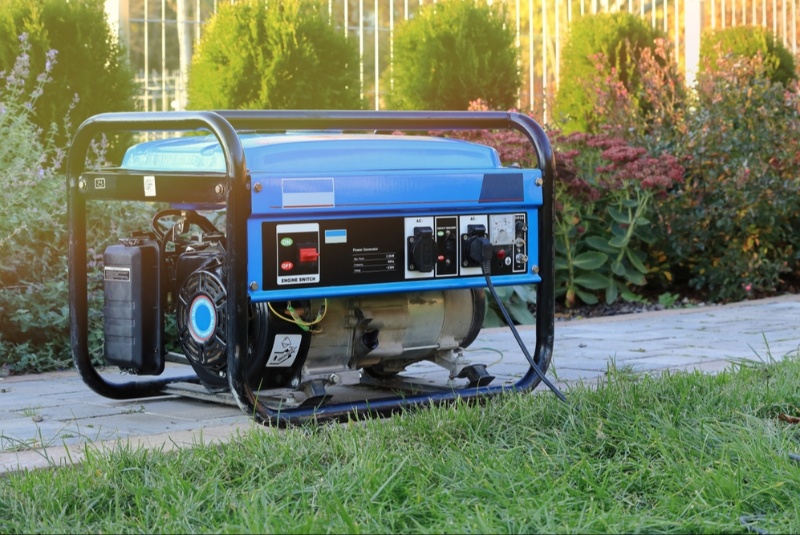Are you drowning in files and desperately need more storage but worried about the cost? We've all been there. External hard drives are lifesavers when it comes to backing up precious photos, important documents, or expanding your computer's capacity. The great news is, you don't have to empty your wallet to get a dependable one. Let's dive into some top tips that'll help you find a reliable external hard drive without breaking the bank.
Understand What You Really Need
First things first—how much storage do you actually need? It's easy to get swayed by huge numbers, but bigger isn't always better (for your budget, at least).
- Assess Your Data: Are you storing mostly text documents and photos? A 500GB or 1TB drive might be plenty.
- Handling Large Files: Dealing with videos, large software files, or gaming data? Consider 2TB or more.
Example: If you have around 200 HD movies, each averaging 5GB, you'll need at least 1TB of storage just for those movies.
Knowing your needs prevents overspending on unnecessary space.
Stick with Trusted Brands
When it comes to technology, brand reputation matters—a lot.
- Reputable Brands: Western Digital, Seagate, Toshiba, and Samsung are known for quality.
- Avoid Unknown Brands: That no-name brand might be cheaper but could fail sooner.
Example: A friend bought an off-brand hard drive that failed after just three months, losing all their vacation photos.
Trust us; it's worth spending a little extra for peace of mind.
Don't Ignore the Warranty
A solid warranty is like a safety net.
- Standard Warranties: Most reputable drives come with at least a one-year warranty.
- Extended Coverage: Some offer up to three years or more.
Example: If your hard drive fails within the warranty period, you can get a replacement or repair without extra cost.
Good customer support can be a lifesaver if you run into any hiccups.
Speed Matters—Check the Read and Write Speeds
Ever tried transferring a large file and felt like watching paint dry would be faster? That's why read and write speeds are crucial.
- USB Standards:
- USB 2.0: Up to 480 Mbps (megabits per second).
- USB 3.0: Up to 5 Gbps (gigabits per second)—over 10 times faster than USB 2.0.
- USB-C and Thunderbolt: Even faster speeds and future-proofing.
Example: Transferring a 10GB file:
- USB 2.0: Approximately 3 minutes.
- USB 3.0: Less than a minute.
Faster speeds mean less waiting around and more getting things done.
Shop Around and Compare Prices
Don't settle for the first deal you see.
- Online Retailers: Amazon, Newegg, Best Buy.
- Price Comparison Tools: Websites and apps that compare prices across multiple retailers.
- Check for Deals: Look for sales, discounts, or coupon codes.
Example: The same hard drive might be $10 cheaper on a different website or during a sale.
Make sure you're getting the best bang for your buck.
Consider Refurbished or Previous Models
Refurbished doesn't mean inferior.
- Refurbished Drives: Tested and restored to like-new condition.
- Older Models: May lack the latest features but offer reliable performance at a lower cost.
Example: A refurbished 2TB hard drive might cost the same as a new 1TB drive, effectively doubling your storage for the same price.
They can offer significant savings without sacrificing quality.
Read Those Reviews!
Before clicking "buy now," take a moment to read customer reviews.
- Look for Patterns: Consistent complaints about the same issue can be a red flag.
- Verified Purchases: Focus on reviews from verified buyers.
- Professional Reviews: Check tech websites for in-depth analyses.
Example: If multiple reviews mention the drive failing after six months, it's probably best to avoid that model.
They'll give you real-world insights into the product's performance and reliability.
Check Compatibility and Connectivity
Make sure the drive you choose is compatible with your devices.
- Connection Types:
- USB-A: Standard USB port found on most computers.
- USB-C: Newer, reversible connector with faster speeds.
- Thunderbolt: High-speed interface for advanced users.
Example: If your laptop only has USB-C ports, buying a USB-A hard drive will require an adapter, adding to your cost.
Ensure seamless connectivity to avoid extra expenses.
Think About Portability and Durability
Will you be tossing your hard drive into a bag and taking it on the go?
- Portable Drives: Smaller, lighter, and powered via USB.
- Durability Features:
- Shock Resistance: Protects against drops.
- Water Resistance: Safeguards against spills.
- Protective Casings: Adds an extra layer of protection.
Example: For photographers who travel, a rugged portable drive can keep precious images safe during transit.
A rugged design can save your data from accidental drops or bumps.

Be Cautious of Deals That Seem Too Good
If a deal seems too good to be true, it probably is.
- Avoid Unverified Sellers: Stick to reputable retailers.
- Check Seller Ratings: On platforms like eBay or Amazon Marketplace.
- Beware of Counterfeits: Extremely low prices may indicate fake products.
Example: A 4TB hard drive listed at $50 when similar models cost $100 should raise a red flag.
Always buy from reputable retailers to ensure you're getting a genuine product.
Use Price Tracking Tools
Want to make sure you're getting the best deal?
- Tools to Use:
- CamelCamelCamel: Tracks Amazon price history.
- Honey: Browser extension that applies coupon codes.
- PriceGrabber: Compares prices across multiple retailers.
Example: Set up an alert for the hard drive you want, and you'll get notified when the price drops.
These tools can alert you when the price drops on the external hard drive you're eyeing.
Look for Bundle Offers
Sometimes, you can get more value through bundle deals.
- Possible Bundles:
- Protective Cases: Keep your drive safe.
- USB Hubs: Expand your device's connectivity.
- Backup Software: Automate your data backups.
Example: A bundle might offer a hard drive and a carrying case for less than the cost of buying them separately.
It's worth checking out for added value.
Think Long-Term, Not Just Immediate Cost
While it's tempting to go for the cheapest option, consider the long-term value.
- Reliability Over Price: A more expensive drive may last longer.
- Cost of Data Loss: Losing important files can be devastating.
- Replacement Costs: Cheaper drives may fail sooner, requiring another purchase.
Example: Spending an extra $20 now could save you from having to replace a failed drive in a year.
A slightly more expensive drive that's reliable and durable can save you money in the long run.
Choose the Right Physical Size
External hard drives generally come in two sizes:
- 2.5-inch Drives:
- Pros: Portable, USB-powered.
- Cons: Generally more expensive per TB.
- 3.5-inch Drives:
- Pros: Cheaper per TB, higher capacities.
- Cons: Require external power source, less portable.
Example: If you need a stationary backup solution for home use, a 3.5-inch drive offers more storage for less money.
Decide what's more important for you: portability or capacity.
Backup Software Can Be a Bonus
Some external hard drives come with built-in backup software.
- Automated Backups: Schedule regular backups without manual effort.
- Data Encryption: Protect sensitive information.
- Cloud Integration: Sync with cloud storage services.
Example: A drive that includes software can automatically back up your system every night, ensuring your data is always safe.
It's like having a personal assistant for your data!
Do You Need Extra Features?
Consider if you need additional features.
- Hardware Encryption: For added security of sensitive data.
- Wi-Fi Connectivity: Access your drive wirelessly.
- Cross-Platform Compatibility: Works with Windows, macOS, Linux.
Example: If you're storing confidential work documents, hardware encryption can provide peace of mind.
While these extras can add to the cost, they might be essential depending on your needs.
Join Online Communities for Advice
Sometimes, the best advice comes from people who've been in your shoes.
- Forums and Communities:
- Reddit's r/DataHoarder: For storage enthusiasts.
- Tom's Hardware: Tech advice and reviews.
- Linus Tech Tips: Forums and YouTube reviews.
Example: Posting a question about budget-friendly hard drives can yield personalized recommendations.
Members are happy to share their experiences and suggestions.
Time Your Purchase Right
Timing can be everything.
- Sales Events:
- Black Friday: Major discounts on electronics.
- Cyber Monday: Online deals galore.
- Back-to-School Sales: Great for tech items.
Example: Waiting a few weeks for a sales event could save you 20% or more on your purchase.
If you can wait, you might snag a great deal during these periods.
Don't Forget About Local Stores
While online shopping is convenient, don't overlook local electronics stores.
- Advantages:
- Clearance Sales: Stores may discount older models.
- Open-Box Specials: Returned items sold at a lower price.
- Immediate Gratification: No waiting for shipping.
Example: You might find a great deal on an open-box hard drive that's been tested and is as good as new.
Plus, you get the advantage of seeing the product in person before buying.
Know the Return Policy
Always check the return policy before making a purchase.
- Return Window: How many days you have to return.
- Restocking Fees: Some stores charge a fee for returns.
- Condition Requirements: Original packaging, undamaged condition.
Example: If the hard drive doesn't meet your expectations, a generous return policy allows you to return or exchange it without hassle.
It adds an extra layer of security to your investment.
Finding a reliable external hard drive on a budget doesn't have to be a stressful scavenger hunt. With a little research and by keeping these tips in mind, you can find a dependable storage solution that won't strain your finances. Remember, the goal is to find a balance between cost and quality. Your data is valuable—make sure it's stored safely without overspending.
Ready to start your search? Happy hunting, and may you find the perfect hard drive that fits both your needs and your wallet!





